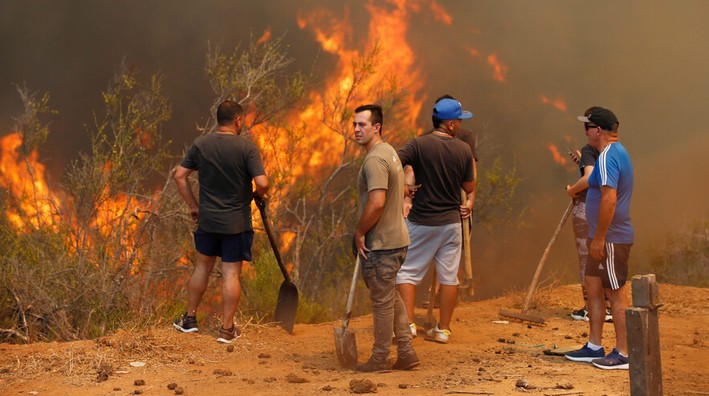- The network of trade associations, to which Acoforag belongs, warns that the bill under consideration does not fully address prevention and recovery after disasters, imposing additional burdens on municipalities.
Futuro Madera, a network of trade associations seeking to position and highlight the timber industry with its key attributes and challenges, stated regarding the Fire Law bill currently under discussion in Congress that this legislation will impose a series of obligations on municipalities, many of which already meet these standards on their own initiative.
"This regulation mandates municipal governments to create firebreaks, establish interface zones, and set action standards. Although the goal is to prevent the spread of fires, this rule will increase the administrative burden on municipalities and fails to account for varying geographical realities," emphasized the association to which Acoforag belongs.
"From the timber industry, we believe it is urgent to have regulations that truly match the scale of the problem we face as a society. That is, a legal framework that equips the state and respective landowners with the capacity to prevent fire outbreaks, fight fires with adequate resources, reduce fire spread, investigate causes, pursue intentional acts, and recover fire-affected areas. Prevention, firefighting, investigation, and recovery are fundamental components of comprehensive wildfire and rural fire management," they stressed.
Futuro Madera argued that the current bill aimed at regulating the prevention of wildfires and rural fires (Bulletin 16335-14) focuses mainly on reducing fire spread without comprehensively addressing the full cycle of fire management. It does not provide new preventive tools, fails to address gaps in combating intentional acts and negligence, and does not offer sufficient support for fire-affected rural areas, especially small landowners.
All these elements, absent in the current bill, have become common criteria in leading legislation, such as in the European Union. Chile deserves a good fire law—let’s not be mistaken. Regarding the ongoing discussion in Congress, our stance is:
1. Chile needs a fire law that pursues intentional acts. The current bill does not address intentionality and, instead, holds agricultural and forestry landowners responsible for potential fires.
2. Chile needs a fire law that promotes recovery. The bill omits any support for the recovery of affected vegetation if it has a commercial timber production purpose. After fires, thousands of people lose their livelihoods and receive no state support to recover from adversity.
3. Chile needs a fire law that does not restrict the freedom of small and medium landowners or affect property rights. The bill’s Title II limits landowners' decisions on what to replant in fire-affected areas, directly harming their freedom by forcing them to comply with authority-defined measures.
4. Chile needs a fire law that strengthens firefighting and enhances the work of firefighters. The current bill does not provide facilities for wildfire combat, such as access to properties or the use of nearby water sources. For those fighting fires, it does not establish a labor framework for brigade leaders and operations assistants to facilitate nighttime firefighting, nor does it specify safety measures against attacks on ground and aerial firefighters.
5. Chile needs a fire law where regulations apply to everyone. In our country, there are 23,000 plantation owners and over 90,000 native forest owners, so regulations must consider that agreed-upon rules should not apply only to plantations, as both types of vegetation are combustible and at risk of burning.
"The designation of an urban-forest interface will impose regulatory commitments on municipalities that are not clearly identified, nor is it clear whether there will be support programs for residents in the respective districts. The role of municipalities in implementing this law must be detailed. Currently, the obligations the bill will impose on municipalities are unclear," Futuro Madera pointed out.
They added that Chile needs a fire law that prevents catastrophes like the one this summer in the Valparaíso region, which claimed the lives of 137 compatriots and involved intentional acts. This tragedy would not have been avoided under the current bill because, with its reductionist approach, it does not address the urban reality within the interface.
Chile needs a good fire law. Let’s not oversimplify a complex problem—let’s not be mistaken.
The Futuro Madera Network is composed of the following trade associations:
Chilean Biomass Association – AChBIOM
Association of Forestry Contractors – Acoforag
Native Forest Owners Association – Aprobosque
College of Forestry Engineers – Cifag
Chilean Wood Corporation – Corma
Small and Medium Wood Industries – PymeMad







Comentarios (0)
No hay comentarios aún. ¡Sé el primero en comentar!
Deja un comentario